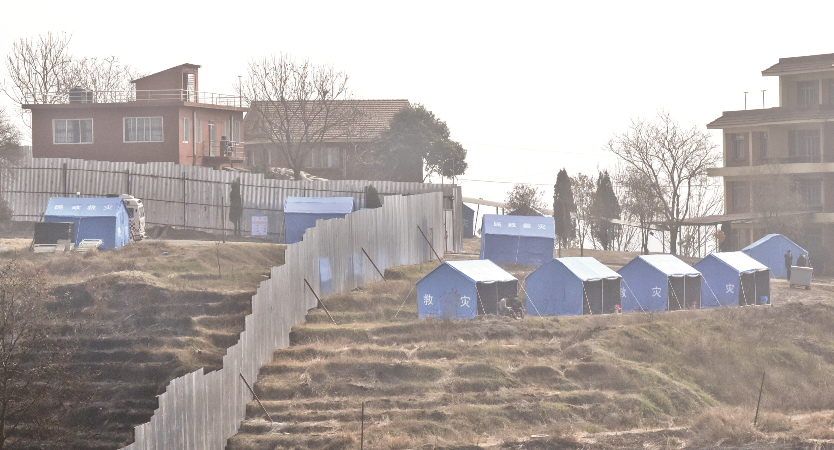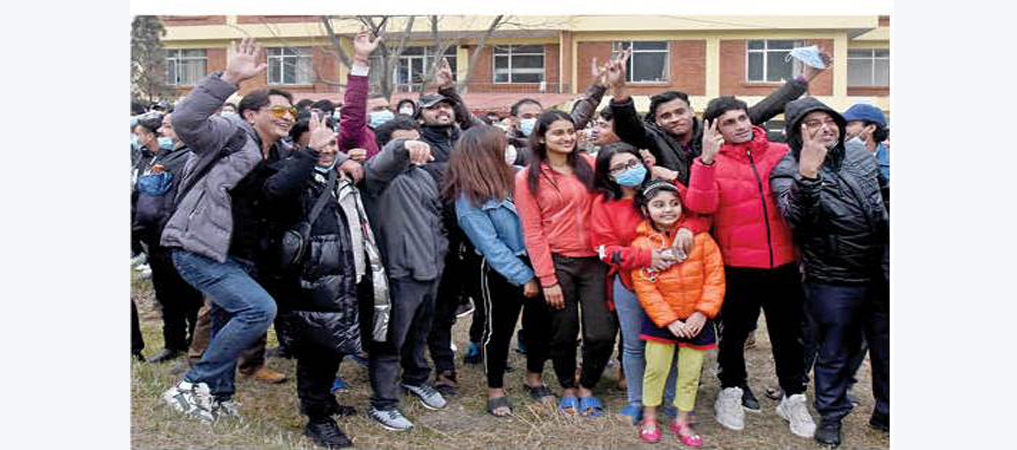Protecting Children
Sampada Anuranjanee Khatiwada
As the COVID-19 pandemic has spread all over the world, hitting each and every family in one way or other, children are found to be more vulnerable when it comes to coping up with the pandemic and the changes that everyone has incurred due to it.
Children, or even the adults, are having a hard time to understand the virus that is spreading all over the world like a wild fire, because of the fake news and information floating all over social media platforms.
Also, the concept of quarantine, isolation and social distancing is new to everyone. In this situation, children may find it hard to understand why their day-to-day lives have changed massively, why their schools have been closed, why they can't step out of the house to play and so forth.
This sudden change in lifestyle due to an unprecedented cause might as well invite depression and anxiety, the experts say. Some children are also facing the virus up close, by being infected with it or by seen their family members struggling with it. Children are also being subjected to domestic violence due to the nationwide lockdown enforced by the government.
While there are various changes, difficulties and problems that children all across the globe are facing due to the COVID-19 pandemic, the World Health Organisation (WHO) suggest that good parenting is the only way to keep children unaffected from the short-term and long-term implication of the deadly Coronavirus.
"Healthy parenting is the only way to engage children in understanding the Coronavirus," stated the WHO. Firstly, parents should inform their children about the Coronavirus, its causes and effects. They should also teach their children about the precautionary measures to prevent the virus infection. If the children are well informed about the on-going situation, the possibility of anxiety and fear would reduce.
Secondly, the WHO suggests that the parents must make sure that the children are well informed about the bright side of the COVID-19 pandemic. They should understand how they're getting to spend more quality time with their busy parents, how the environment outside is getting cleaner due to decline in human movement, how they could utilise their spare time in learning something new or in doing something productive.
Furthermore, as all the schools have been closed, children have a lot of time to kill at home, thinking about anything and everything around them. As an empty mind is a devil's workshop, the parents must make sure that their children are doing productive things and learning something new. They must not let their child's mind rest for a longer period of time.
Lastly, children might be irritated to stay at home all day, without getting to meet their friends due to which, even the happiest of the kids might have cranky days. In situation as such, parents should calm them down, rather than scold or beat them.
Scolding, beating kids or making them experience any other form of violence may have a serious long term implications. Whilst the government has introduced various COVID-19 special helpline numbers, child-centric helpline numbers should also be introduced so that the children could talk about any difficulties they've been facing at home and the parents or guardians can learn about how to keep their children unaffected by the physical and mental consequences of the pandemic.
Recent News

Do not make expressions casting dout on election: EC
14 Apr, 2022
CM Bhatta says may New Year 2079 BS inspire positive thinking
14 Apr, 2022
Three new cases, 44 recoveries in 24 hours
14 Apr, 2022
689 climbers of 84 teams so far acquire permits for climbing various peaks this spring season
14 Apr, 2022
How the rising cost of living crisis is impacting Nepal
14 Apr, 2022
US military confirms an interstellar meteor collided with Earth
14 Apr, 2022
Valneva Covid vaccine approved for use in UK
14 Apr, 2022
Chair Prachanda highlights need of unity among Maoist, Communist forces
14 Apr, 2022
Ranbir Kapoor and Alia Bhatt: Bollywood toasts star couple on wedding
14 Apr, 2022
President Bhandari confers decorations (Photo Feature)
14 Apr, 2022











